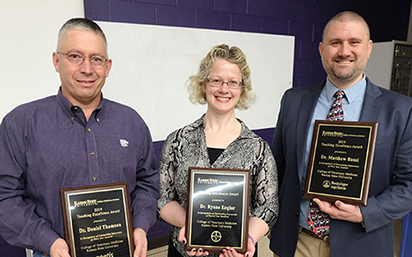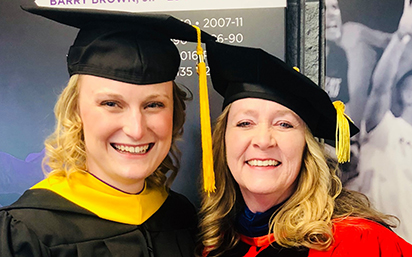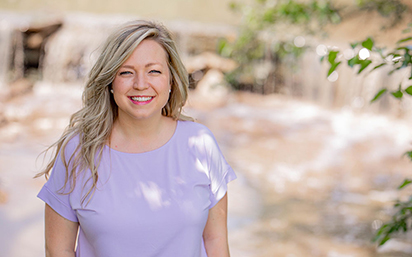
Get to know 2020 Distinguished Young Alumni Award recipient Mindy McBee ’12
After graduating with her degree in agribusiness from Kansas State University, Mindy
McBee ’12 knew that Cargill was the perfect place to start her career — and she’s
been there ever since.
Currently serving as a strategic accounts sales leader for Cargill, McBee continues
to promote those K-State/Cargill connections.
She serves on the K-State Steering Committee within Cargill, an alumni group that
directs where company funds are donated on K-State’s campus. Most recently, she helped
start the Cargill Fellows Program for students, which funds a scholarship for each selected student and provides a
Cargill coach. The fellows are given the opportunity to participate in diversity and
inclusion trainings, service projects and other opportunities.
In honor of her career accomplishments and continued support for K-State, McBee is
being recognized with a 2020 DISTINGUISHED YOUNG ALUMNI AWARD. The annual award honors K-State graduates who are younger than 35 and are using
the scholarship, leadership and service experience they acquired at K-State to excel
in their professions and contribute to their communities.
“Mindy’s dedication to her work has had a major impact on both the company and her
colleagues’ well-being,” said her nominator, Elizabeth Patton, K-State senior in pre-law
and philosophy and Blue Key member. “She is a change agent in any position she is
placed in.”
At K-State asked McBee to share some of her thoughts on receiving the award, her time at K-State
and her goals for the future:
What are your thoughts on receiving a Distinguished Young Alumni Award?
I am incredibly excited and honored to receive this award. This recognition coming
from the Alumni Association is very special to me. The Alumni Association was a huge
part of my campus life and experience. Receiving this award has been a great opportunity
to pause and think about how much of an impact K-State really had on me. I am so thankful
for my own personal experience at KSU, and particularly the faculty and friends of
the university who helped set me on a track to be in a place to win this award today.
Their leadership touched my life personally, and I love seeing it continue with students
today.
What are some of the things you learned during your time at K-State?
I do not even know where to start! A couple very vivid memories I would share would
be meeting with the Alumni Association board of directors as Student Alumni Board
president and feeling so inspired by each of their careers and impact on their communities.
I learned to really dream big after spending time with them.
Another very vivid memory is Blue Key meetings; we would have one each week during
my senior year. Sitting around the table with 15 other people I had “grown up” with
at K-State and who I respected as some of the most impactful student leaders on campus
was such a fun and rich learning experience. We planned events and programs that really
had an impact on others, and I was always very proud of the work we were able to do.
Last, I will share that I learned to choose your path based on what feels right to
you. Put yourself in an environment you can be your genuine self. I did that coming
to the K-State family, and I am thankful I was able to find that same family feel
in Cargill where I have spent my career so far. When I visited campus it was clear
the feel and fit of K-State were perfect for me. I used the same approach when choosing
companies and here we are!
How has your K-State experience impacted your career or made a difference in your
life?
I’ve been reflecting on this question since receiving the DYA Award. K-State gave
me some of my very best friends, a formal education and confidence in myself gained
through my on-campus leadership experiences. K-State led me to Cargill, which ultimately
led me to my husband! I give K-State a huge amount of credit for the life I have today.
My time at K-State was incredibly full of life experiences, FUN, meeting great alumni
and being a part of organizations that I really loved.
What are your career goals for the future?
My career goals are to make a lasting impact on agriculture, females in agriculture,
and to give back to people and places that have helped shape me.
What advice would you offer to other young K-State alumni?
I would tell young alumni to focus on networking and goal setting. Make an effort
to keep your college network, and challenge yourself to meet new people in your industry
and community regularly. I would also say setting and maintaining lofty goals is critical.
I really believe what you say to yourself comes true, so you better make it good!
LEARN MORE ABOUT THE K-STATE ALUMNI ASSOCIATION’S DYA PROGRAM.


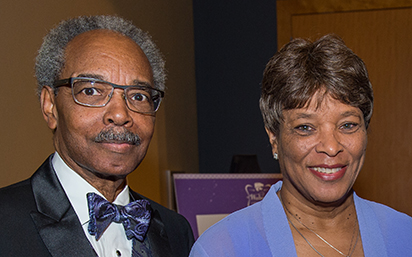
 Roy values the university leaders who took time to mentor him, and he has enjoyed
recruiting more students to the university, even when he was a student himself.
Roy values the university leaders who took time to mentor him, and he has enjoyed
recruiting more students to the university, even when he was a student himself.
 Newton said the application form to be on the show was quite extensive and involved
answering almost 100 questions; sending pictures of your best baking products; and
providing detailed descriptions of the skills you have and those you might be lacking.
Then potential contestants are asked to send a five-minute video stating why they
feel they would be a good contestant.
Newton said the application form to be on the show was quite extensive and involved
answering almost 100 questions; sending pictures of your best baking products; and
providing detailed descriptions of the skills you have and those you might be lacking.
Then potential contestants are asked to send a five-minute video stating why they
feel they would be a good contestant. “You will become a much better baker than before,” Newton said. “You are forced to
go out of your comfort zone, and design recipes in areas of baking that maybe are
not your strongest suit, and they have to be good enough to try to impress Paul Hollywood
and Sherry Yard, the judges in the American show.”
“You will become a much better baker than before,” Newton said. “You are forced to
go out of your comfort zone, and design recipes in areas of baking that maybe are
not your strongest suit, and they have to be good enough to try to impress Paul Hollywood
and Sherry Yard, the judges in the American show.”
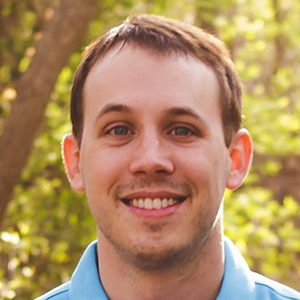 Associate professor of computer science and engineering at the University of Notre
Dame, K-Stater Tim Weninger ’07, ’08 has been studying fake news masquerading as truth.
Associate professor of computer science and engineering at the University of Notre
Dame, K-Stater Tim Weninger ’07, ’08 has been studying fake news masquerading as truth.

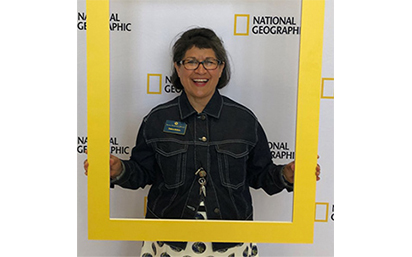 To be an explorer does not mean you have to travel far and wide. For Debra Bolton
’11, the director of intercultural learning and academic success at Kansas State University,
being an explorer means exploring the world from our backyards.
To be an explorer does not mean you have to travel far and wide. For Debra Bolton
’11, the director of intercultural learning and academic success at Kansas State University,
being an explorer means exploring the world from our backyards.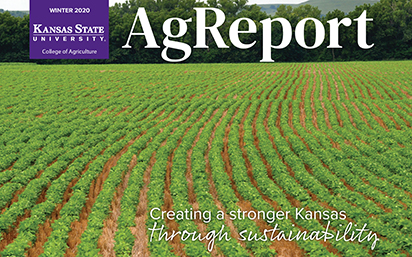

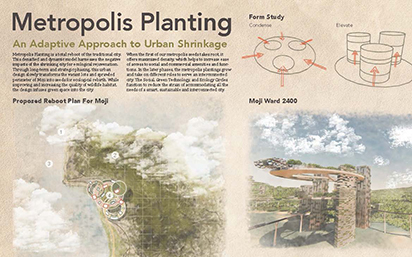 Three landscape architecture graduate students from the College of Architecture, Planning
and Design Department of Landscape Architecture and Regional and Community Planning
earned a coveted honorable mention award in the NPO Asian Institute of Low Carbon
Design at the ninth annual International Student Design Competition.
Three landscape architecture graduate students from the College of Architecture, Planning
and Design Department of Landscape Architecture and Regional and Community Planning
earned a coveted honorable mention award in the NPO Asian Institute of Low Carbon
Design at the ninth annual International Student Design Competition.
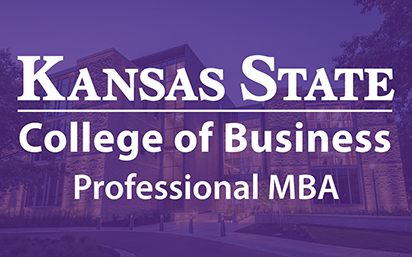
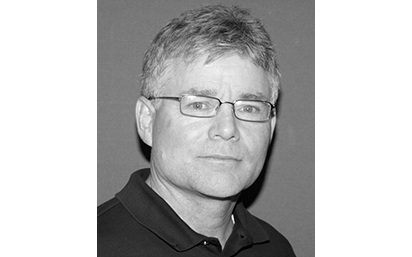
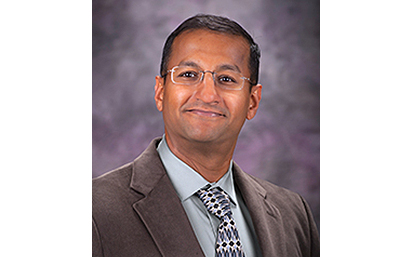
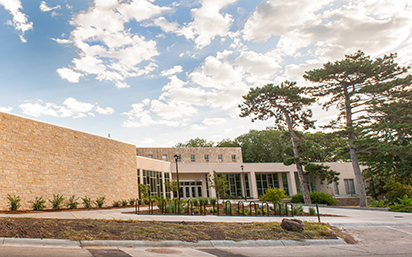
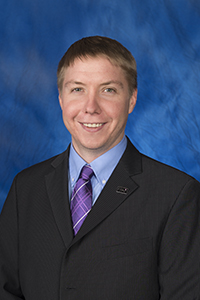 Martin C. Seay, program chair and associate professor of personal financial planning and
certified financial planner, officially assumed his duties as the 2020 president of
the Financial Planning Association, effective Jan. 1.
Martin C. Seay, program chair and associate professor of personal financial planning and
certified financial planner, officially assumed his duties as the 2020 president of
the Financial Planning Association, effective Jan. 1.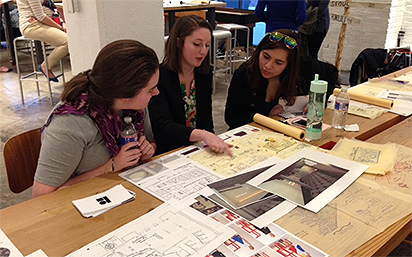 The interior design program in the College of Health and Human Sciences has been named
a top program by ADPRO, Architectural Digest’s members-only community for design industry professionals.
The interior design program in the College of Health and Human Sciences has been named
a top program by ADPRO, Architectural Digest’s members-only community for design industry professionals.
